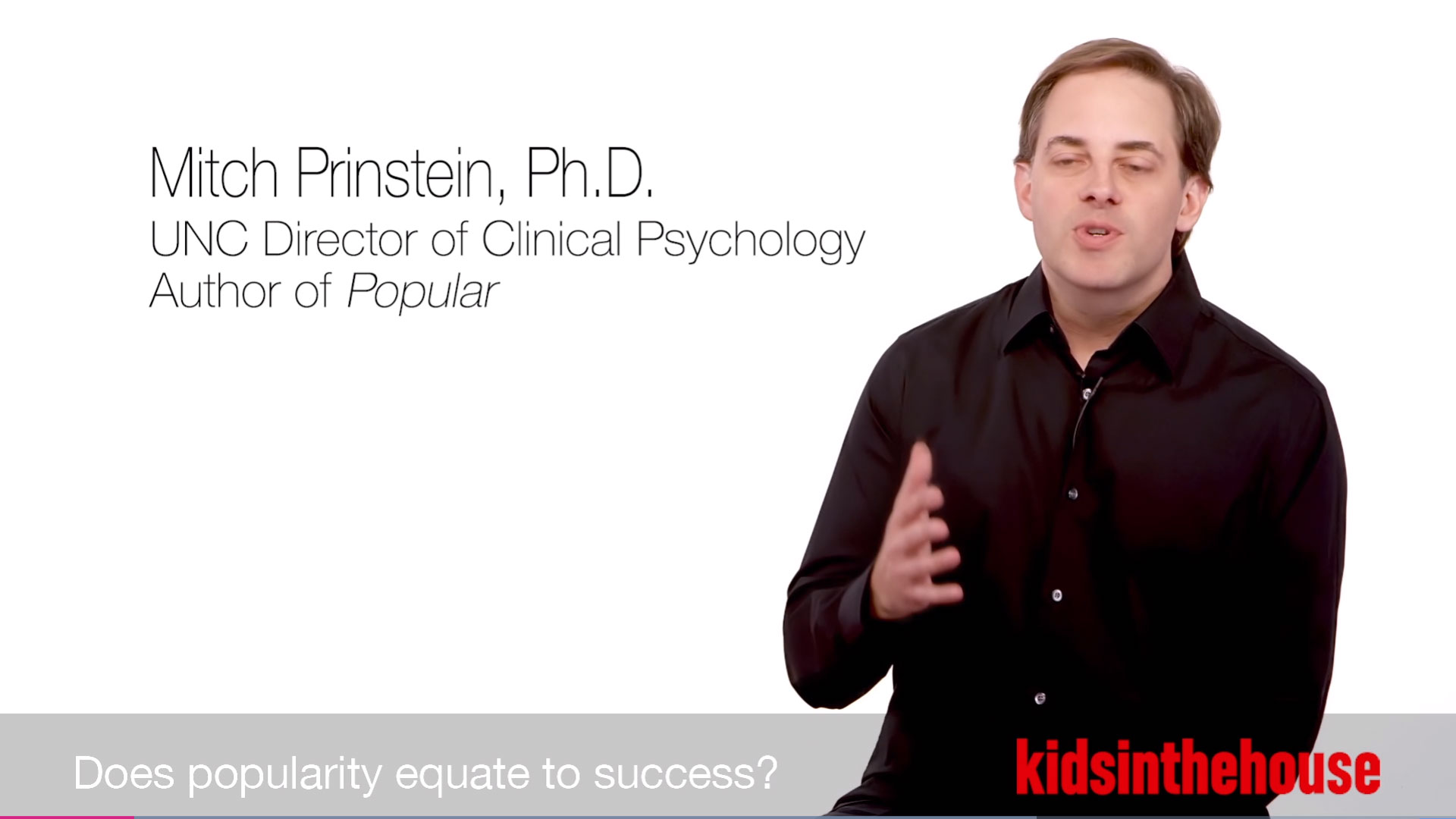Does popularity equate to success?
- I wish that every kid realized just how much science is telling us that the most popular kids in school, those who are aggressive, dominant, highly visible and influential, are actually learning something quite dangerous. They're learning that the best way to get through life is to be focusing specifically on how much everyone is constantly telling them how admired they are, how powerful they are, and research tells us that those kids grow up to have difficulties in their relationships at work and at home for exactly those reasons. They continue to think that the world works by making everyone think of them as powerful and dominant and important rather than making genuine social connections. If kids out there knew that popularity, as important as it feels in adolescence, is actually not something that you want to have longterm, it might help those kids who have just one or two really close friends who teach them how to care about others. The research suggests that that's all you need to live a very happy life.
Mitch Prinstein, PhD shares research telling us that the most popular kids in school, those who are aggressive, dominant, highly visible and influential, are actually learning that the best way to get through life is to be focusing specifically on how much everyone is constantly telling them how admired they are, how powerful they are, and research tells us that those kids grow up to have difficulties in their relationships at work and at home for exactly those reasons.
Related Videos
Transcript
Expert Bio
More from Expert
Mitch Prinstein, Ph.DProfessor of Psychology and Neuroscience
Mitch Prinstein, Ph.D. is a husband, a father, board certified in clinical child and adolescent psychology, and serves as the John Van Seters Distinguished Professor of Psychology and Neuroscience, and the Director of Clinical Psychology at the University of North Carolina at Chapel Hill.Mitch’s Peer Relations Lab has been conducting research on popularity and peer relations for almost 20 years, and has been funded by the National Institute of Mental Health, the National Institute of Child and Human Development, and several private foundations, resulting in over 100 scientific works, including a slew of scientific journal articles, book chapters, a set of encyclopedias on adolescent development, and even a textbook on the field of clinical psychology.Mitch is deeply committed to science and training in clinical psychology, having served as President of the Society for a Science of Clinical Psychology and the Society of Clinical Child and Adolescent Psychology, the Editor-in-Chief of the Journal of Clinical Child and Adolescent Psychology, and on the boards of the American Psychological Association, the Council of University Directors of Clinical Psychology, and publication board of the Association of Behavioral and Cognitive Therapies.He and his research have been featured in The New York Times, The Wall Street Journal, National Public Radio, the Los Angeles Times, CNN, U.S. News & World Report, Time magazine, New York magazine, Newsweek, Reuters, Family Circle, Real Simple, and elsewhere.




 GET ACCESS TO ALL PREMIUM CONTENT WITH NO ADS FOR $4.99/MONTH
GET ACCESS TO ALL PREMIUM CONTENT WITH NO ADS FOR $4.99/MONTH
Login or Register to view and post comments